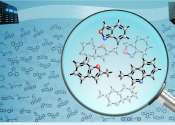AI helps whittle down candidates for hydrogen carriers in liquid form from billions to about 40
In a computational study leveraging artificial intelligence (AI), scientists at the U.S. Department of Energy's (DOE) Argonne National Laboratory have assessed 160 billion molecules, a number exceeding the people born in ...
Jan 10, 2024
0
122









